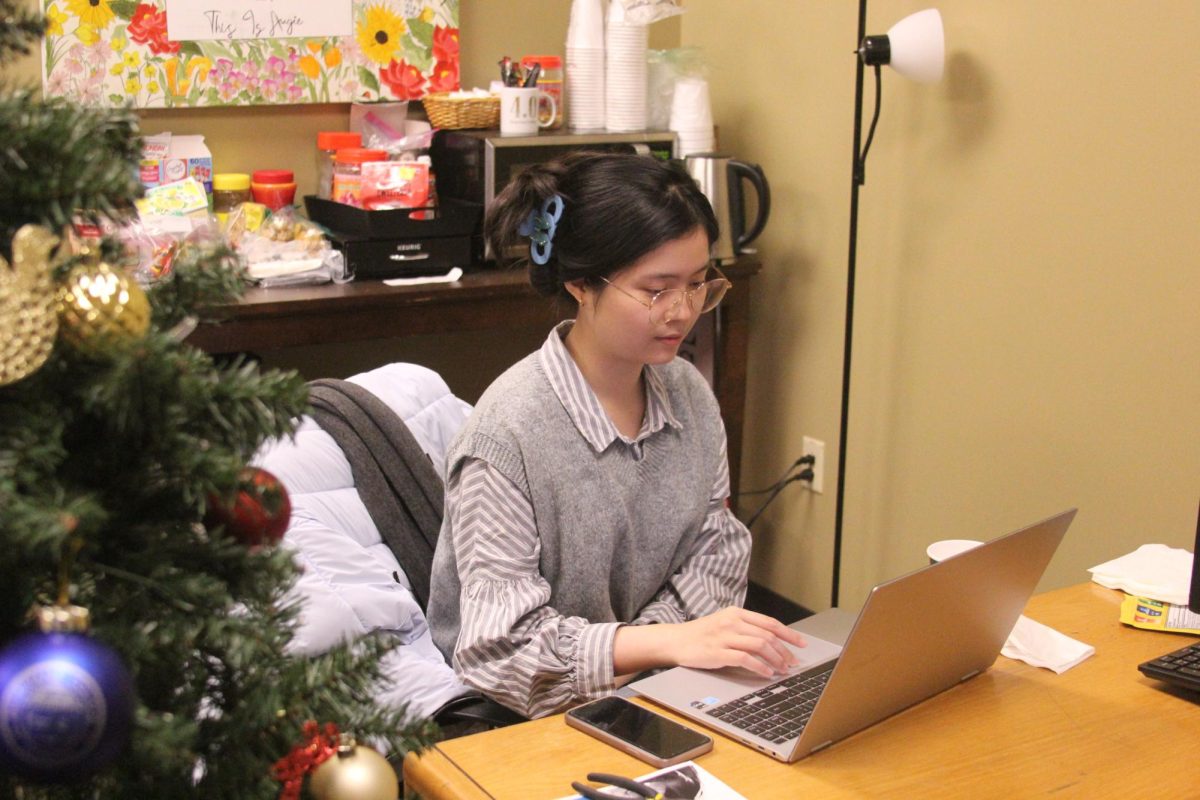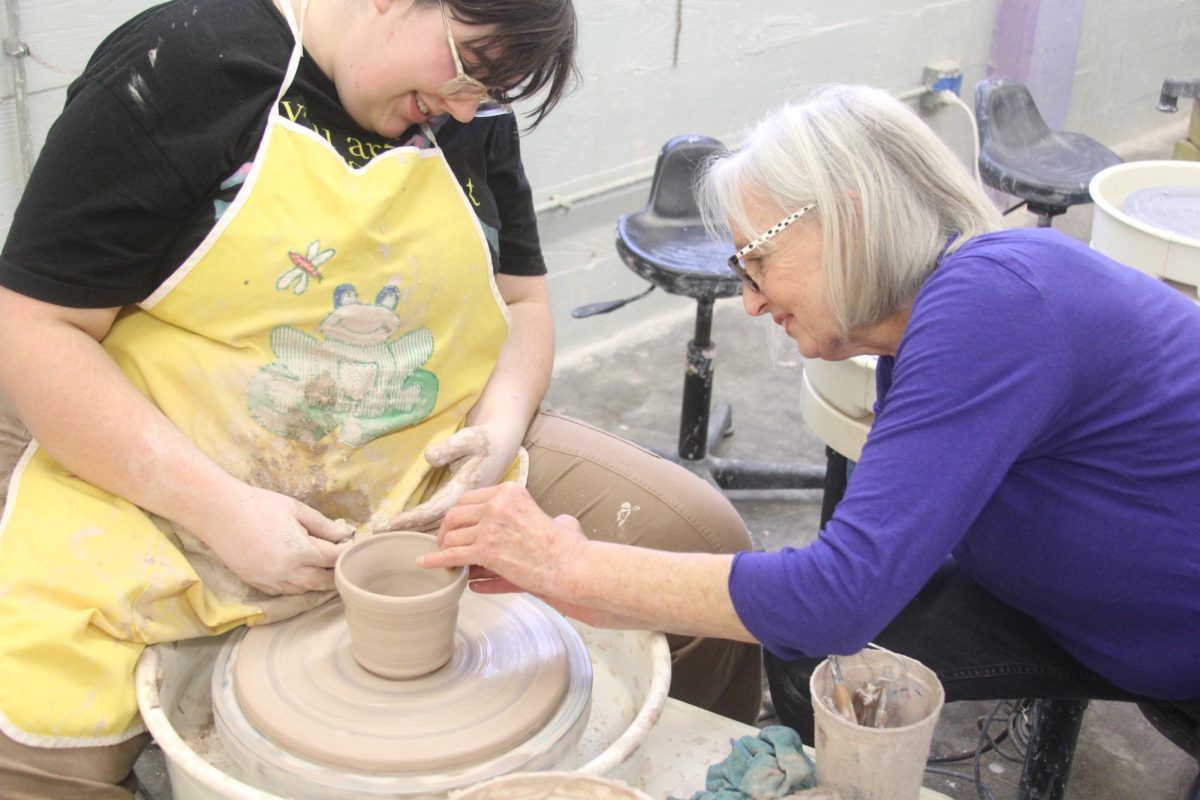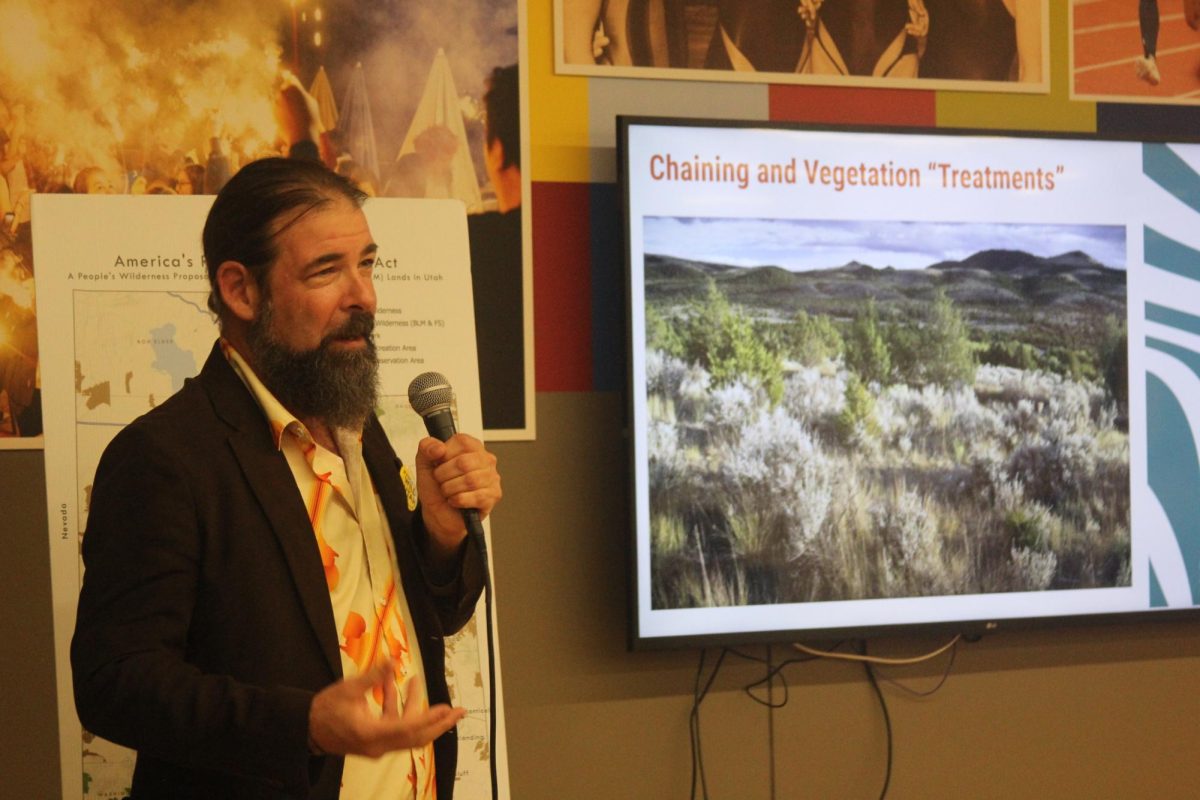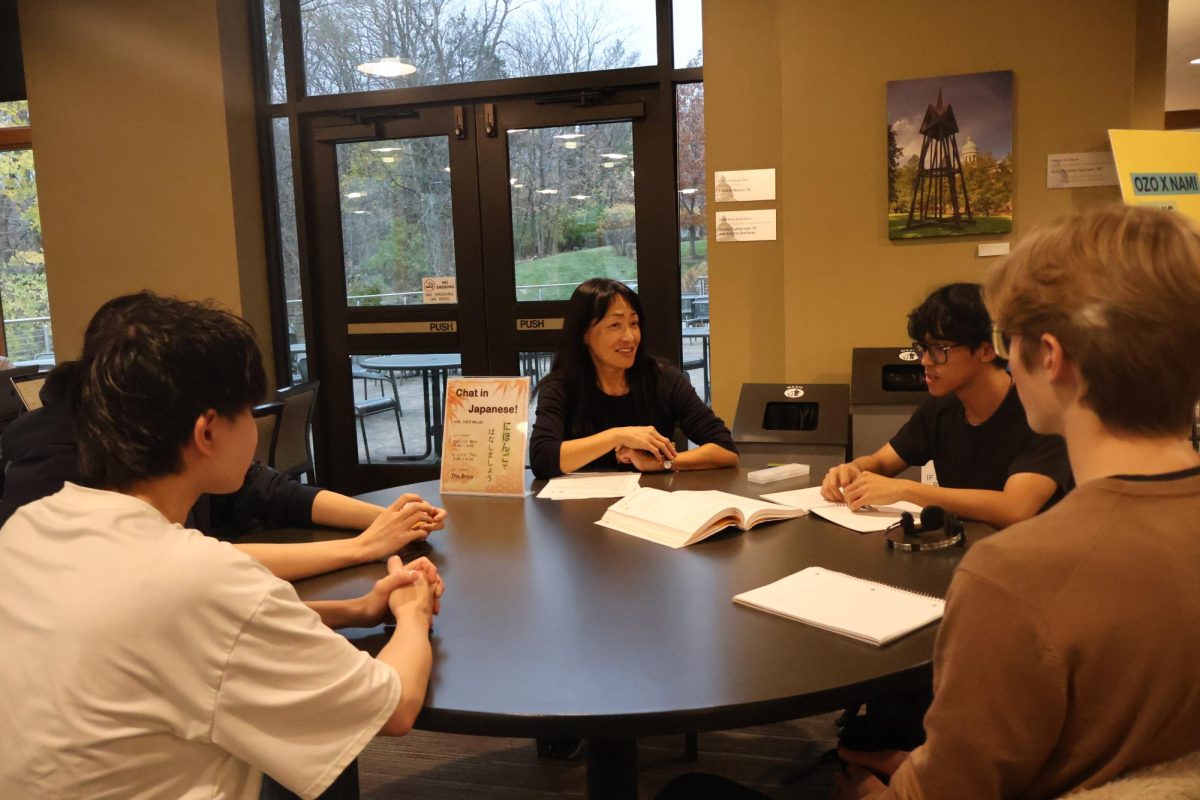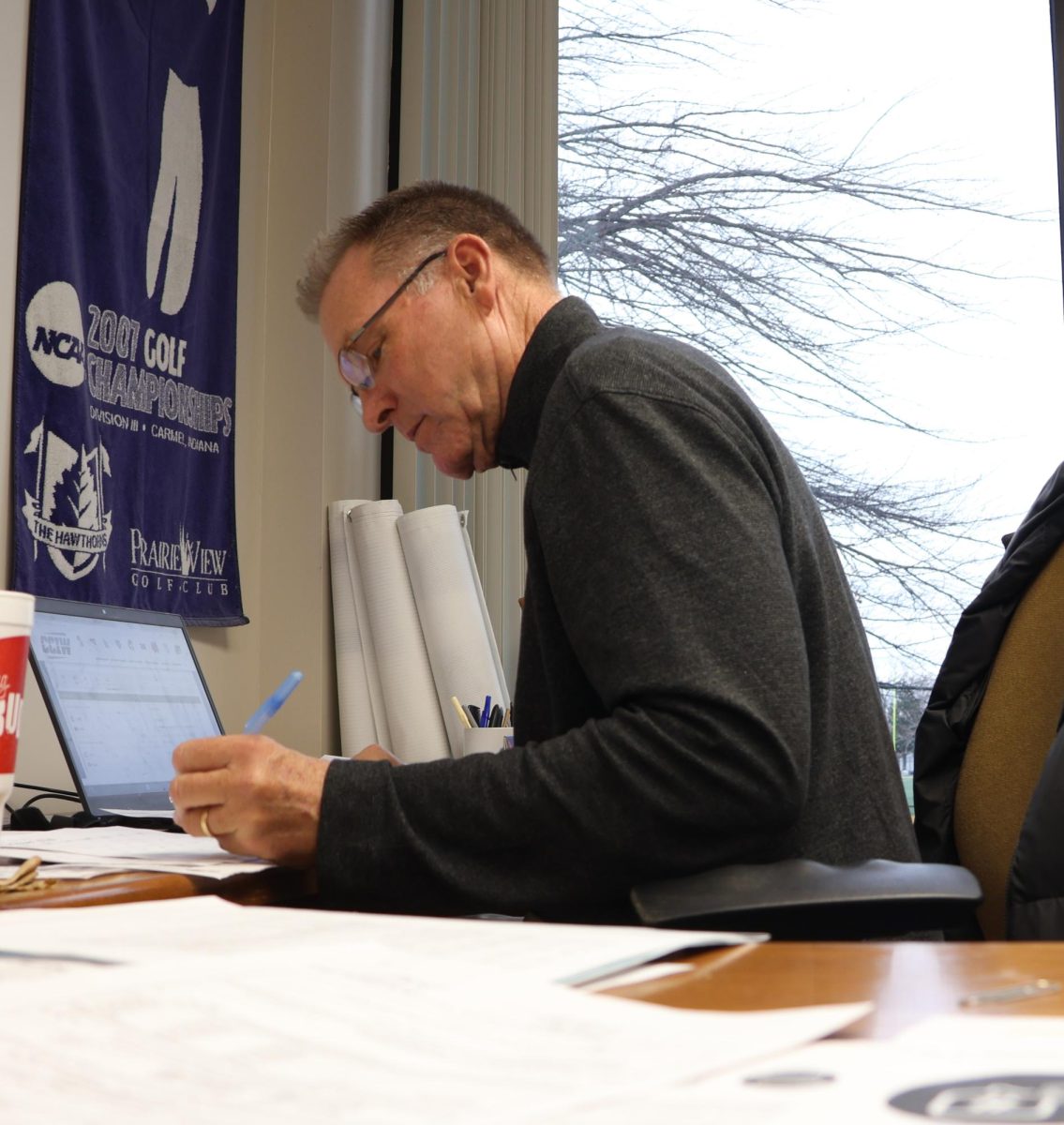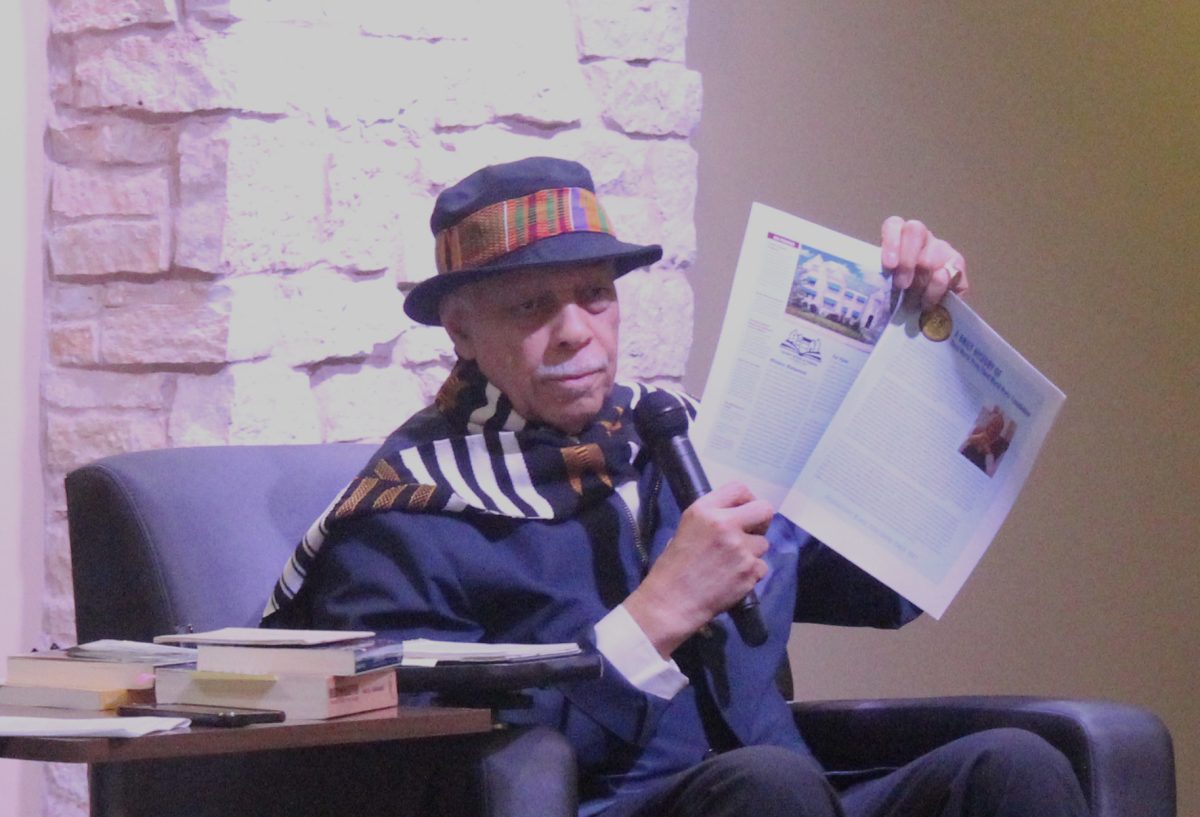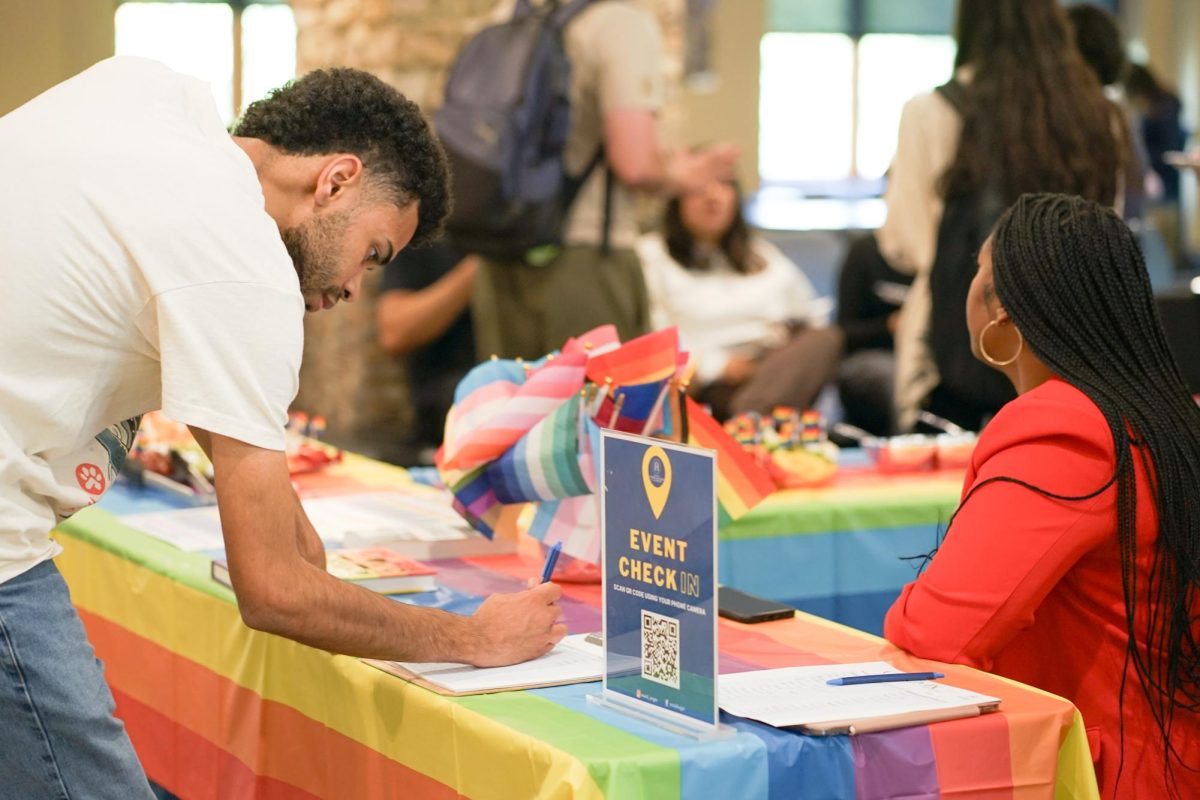After a lifetime of breaking boundaries in the fields of poetry, publishing and education, Haki Madhubuti came to Augustana to share his life stories and offer advice to future generations.
On March 5, Special Collections hosted the event, titled “In Conversation with Renowned Poet Haki Madhubuti on Writing, Publishing, and Community Advocacy, moderated by Aubrey (Aubs.) Barnes.”
Madhubuti has authored over 37 publications, served as a college professor and has been a leading figure in Black literature and the Black Arts Movement. He founded the Third World Press Foundation in 1967, the second oldest independent publisher of Black thought and literature. Throughout his life, he has been an expert in Black literature.
“All people create art,” Madhubuti said. “The degree that their art speaks to not only their own people, but other people, says a lot about them.”
He first developed a love for Black literature when he was 14 years old. He went to the Detroit public library to check out a book his mother had asked for titled “Black Boy” by Richard Wright. He sat down and started to read it in the library, and it changed how he thought about himself.
“For the first time in my life, I was reading literature that wasn’t an insult to my own person. I was reading words and sentences and paragraphs about me, about us,” Madhubuti said.
While serving in the United States Army at 18, he read a book a day and wrote a 250-word essay about each one. The vast knowledge he gained by reading led to his work as a college professor at the age of 28, because he was a rare expert in the field of Black literature. At 82, his educational work continues today, running three schools in Chicago: two K-8th and one preschool.
According to Madhubuti, the assassination of Malcolm X lit a spark in the Black Arts Movement, causing him and the people around him to reflect on their identity and mission reflected in their art.
“Any people who essentially are trying to find themselves will see themselves in their creations. So the Black Arts Movement is about Black artists going inside and bringing what’s inside of them out: in poems, in fiction, visual art, music, drama, dance and even in the ministry,” Madhubuti said. “Black is much more than the color. We’re talking about culture, and from the culture comes consciousness. From culture, you get a sense of identity, purpose, direction.”
Over the course of his life, Madhubuti has traveled around the world, reading and speaking to thousands of people.
“I’ve been to four continents. I’ve read in many nations,” Madhubuti said. “I’ve been to Africa about 15 times [and] was able to sit and talk with four presidents.”
During a trip to Africa in 1974, he changed his name from his birth name, Don L. Lee, to his current name, Haki Madhubiti, which means “just’ and “accurate and dependable” in Swahili.
Madhubuti said institutions like Augustana are built to help people find truth and prepare themselves for the world.
“Empirical truth requires research, requires conversation, requires work studying and requires you to define very early what your mission is,” Madhubuti said. “You have to have a vision, a mission and some understanding of how the world works in order to function in the world. If you do not have that, the world is going to function on you.”
As of 2015, Third World Press currently operates as a non-profit publisher, owning real estate for half a city block in Chicago. Madhubuti credits some of his success in publishing to Gwendolyn Brooks, the first Black poet and writer to win the Pulitzer Prize. Madhubuti refers to Brooks as his adoptive cultural mother.
“She adopted me when I was about 28, and we publish all of her works at Third World Press, because my commitment to Dr. Brooks was that we would not let any of her books go out of print,” Madhubuti said.
The credit for bringing Madhubuti to campus goes to Micaela Terronez, Special Collections librarian. According to Terronez, the full planning process took about a year.
Terronez said that Peter Ruclic, husband of recently retired Library Administrative Assistant Vicky Ruclic, is a close friend of Madhubuti and helped connect Terronez with Third World Press to invite Madhubuti to campus.
“Within publishing in general, especially independent publishing, not a lot of folks stay afloat for long periods of time,” Terronez said. “So the fact that he has been involved in publishing and has been a successful poet for 55 years is a testament to what he believes in and his service. I think there is a lot of value to his example.”
Terronez created the event with Barnes as the moderator to connect the event to local poetry in the Quad Cities.
“[Barnes] is well-regarded in the community as a spoken word poet and community advocate and educator,” Terronez said. “I saw a lot of similarities between Dr. Madhubuti and Aubrey Barnes, and so I wanted to see what a conversation would look like between those two folks.”
A Quad Cities local, Barnes is the founder of the Black Thoughts Podcast and Roaring Rhetoric, the longest-running open mic in the Quad Cities, operating for more than nine years. The open mic is currently located at Rozz-Tox coffee shop. Barnes is known for being a spoken word poet, performing his poetry to audiences.
“Whenever I’m writing a poem, it’s coming out of something that I’m processing in life and really giving me the answers to what I’m trying to figure out through the narratives,” Barnes said. “[Performing is to] let go and let that same energy that inspired me to write speak as well.”
The audience at the event had the opportunity to hear one of Barnes’ students perform a poem at the beginning of the event, and Madhubuti read poems from his books at the end of the night.
The event was live streamed with the hope that everyone who couldn’t attend the event in person could still hear the messages and life stories Madhubuti told. Madhubuti advised people to prioritize communication and embrace the challenges we face.
“Associate yourself with people who are trying to do something other than talk bad about other people,” Madhubuti said. “Move toward life. Don’t be afraid to try something new. Do not be afraid of being challenged by others. And, finally, understand there is something great in all of us.”

